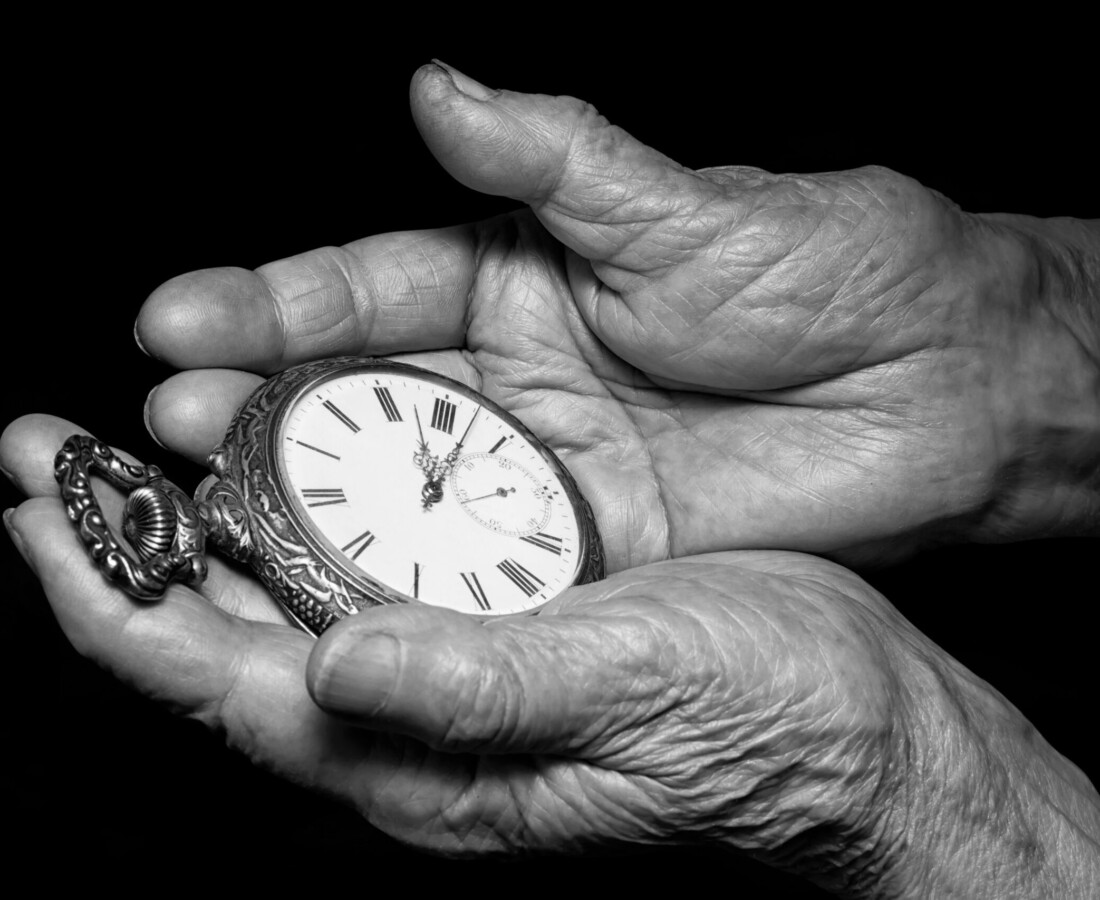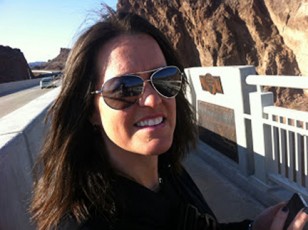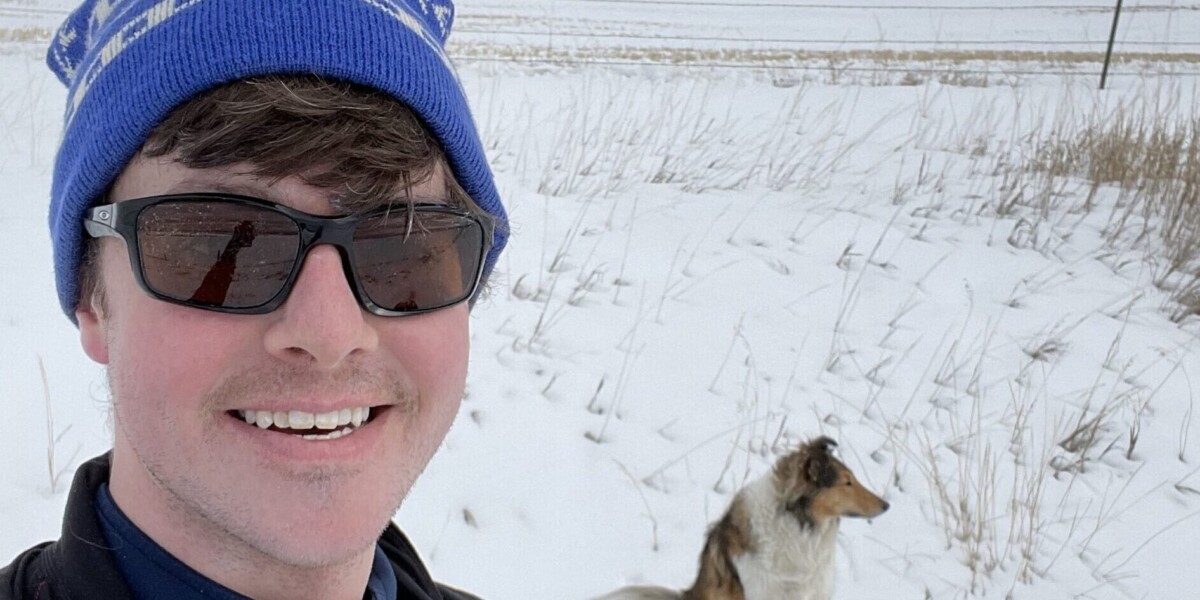Many people are afraid of talking about and preparing for their own death, but Francesca Arnoldy doesn’t think you need to be one of them. She is a death doula and the creator of UVM’s End of Life Doula Professional Certificate. Her work enables her to companion people through their end-of-life journey as a non-medical emotional support person.

You’ll see the terms end-of-life doula and death doula used interchangeably. Arnoldy says using death doula is a way to normalize the word death and allay the fear surrounding death and dying culturally. Though, end-of-life is more all-encompassing of the services provided.
“The reason that we chose to title our program end-of-life doula training is because we felt like death itself is one moment,” Arnoldy said. “We are supportive of the time leading up to that one moment, and that one moment itself, yet end-of-life is really more broad… I have seen more interest from people who are younger, from people who are in good health… to communicate their needs and wishes.”
The Evolution of the Death Doula Movement
Arnoldy began her doula career as a birth doula. After supporting her grandfather at his time of death, her inner compass called her to expand her services to include supporting those in the dying process. She now offers her services as a community doula.
“I quickly realized that what I was offering my grandfather was very similar to what I offer people during the birthing experience, which is also very intense and very mysterious and has its own unique pacing and path every time,” Arnoldy said.
In 2016 Arnoldy began the process of preparing for and creating the curriculum for what would become the first end-of-life doula certificate program hosted by a medical school. Since then, she’s watched the doula movement grow, has been featured in national news outlets multiple times for her work, and has helped over 1,400 people receive their end-of-life doula certificate from UVM’s Larner College of Medicine.
The demand for more trained end-of-life doulas is gaining traction globally. It’s driven by what Arnoldy observes to be both a cultural, spiritual awakening and the changing needs of baby boomers here in the U.S.
Pandemic and Boomers Accelerate Interest in Death Doula Work
The pandemic caused many people to reflect on their mortality as well as their career goals. Arnoldy says many end-of-life doula students want to do something more meaningful. In addition, many in and outside the healthcare field, are beginning to see the value of providing more holistic care.
“People enter into the doula program with a variety of goals in mind and then decide to utilize that term, doula, in different ways. We’ve had some people come through who say, ‘I’m a nurse with a doula heart,’ or ‘I’m a counselor with a doula heart,’ and I really think that’s beautiful,” Arnoldy said.
The trend to de-medicalize care at birth and death is also driving interest in both becoming an end-of-life doula and utilizing end-of-life doula services. Arnoldy says when baby boomers had children, they realized the value of fewer medical interventions.
“While it’s really important to have safe medical interventions when they’re necessary, the overuse of them is actually detrimental to both the pregnant, birthing person and the babies, so I think we’re seeing that shift happening again now that boomers are aging and they’re beginning to become elders themselves,” Arnoldy said. “They’re seeking a different sort of end-of-life experience. One that’s more personalized, during which they feel more empowered to make their wishes and preferences known, and to be treated as themself the whole way through the process.”
An Emerging Shift in How Health Professionals Do Death
Over the past several decades, more health professionals have become aware of the work of death doulas. Arnoldy has also observed a steady, gradual shift in humanizing care at end of life to provide a more dignified personalized experience for patients.
“We still have a ways to go, but I think part of the reason that we’re so fearful of death is because we’re not exposed to it, we’re not brought up with death being present during life… it’s just been pushed to the shadows, into the corners, into hospitals, and largely outsourced,” Arnoldy said.
Once medical care teams see first-hand that doulas don’t replicate available services, they appreciate the additional layer of support that doulas offer.
“We have to educate, and we have to prove our worth, and that’s a really important part of doula care, whether it’s birth or end-of-life,” Arnoldy said.
Many medical professionals are also seeing the value of becoming trained as doulas themselves.
“They’re not only able to expand their approaches to end-of-life care, but they’re also really able to revisit their own grief and access additional healing,” Arnoldy said.
Changing How We View Death for Future Generations
It’s Arnoldy’s dream for people of all stages of life to have more honest, age-appropriate conversations about death so that we can live in a culture that is accepting of death and mortality.
“Death can be quite painless, and it can be very peaceful… to realize it’s not as horrible as some of us would imagine, or as terrifying as it’s made out to be in movies or books… it does relieve a burden that we carry,” Arnoldy said. “While people might question, ‘Isn’t it dark? Isn’t it gloomy? Isn’t it depressing to work in the deathcare field?’ I would actually argue that it’s really quite motivating. You appreciate your days so much more when you realize that you have a limited amount of time to live.”




